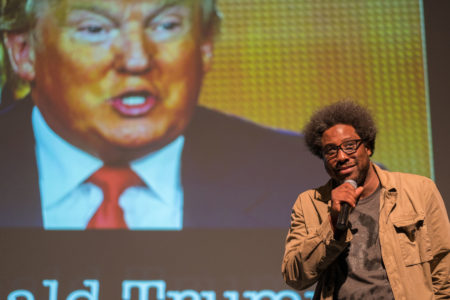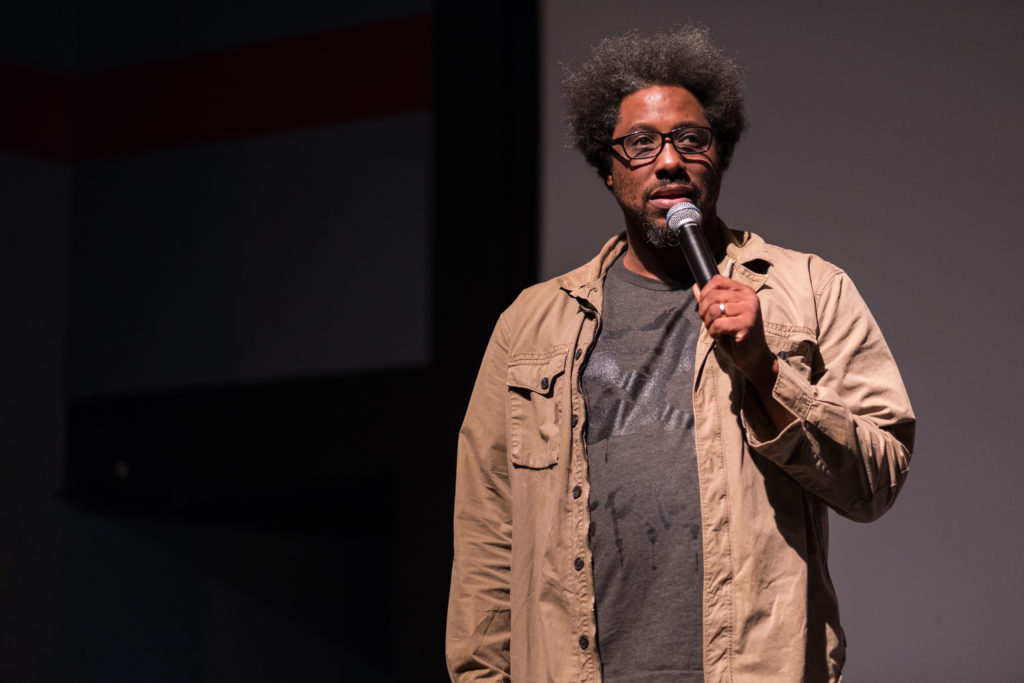Zane Silk
silkzane@grinnell.edu
When I first entered the Harris Theater on Tuesday night, I did not expect to hear many of my fellow audience members yell out loudly, “I’m white and I’m proud!” But that is exactly what happened during comedian W. Kamau Bell’s show “The W. Kamau Bell Curve: Ending Racism in About an Hour.” The show delivered a mix of biting jokes and unflinching commentary on what remains a pressing topic in the age of Donald Trump.
Bell is a stand-up comic from San Francisco who first gained national prominence on the FX show “Totally Biased with W. Kamau Bell” that ran during 2012 and 2013. Bell now hosts “United Shades of America” on CNN, as well as two podcasts. Race has been a topic of focus throughout Bell’s career, and his show at Grinnell was no different. Built around a mixture of photos and videos projected behind him, the show often felt more like a TED talk than a traditional stand-up set.
Bell spent much of the first half of the show discussing what racism is and how it persistently plagues America. He used examples such as sports team mascots that caricature Native Americans and the prevalence of white actors being cast to play people of color, and late began to introduce ways we can address racism. As the show went on, Bell continued to touch on complex and intersectional issues, such as the overrepresentation of black people in prisons and the growth of the racial wealth gap following the Great Recession.
Bell’s thesis encompassed the idea that all white people must take responsibility for racism and acknowledge their privilege. Bell explained that although it is impossible for one person to seemingly “speak for their race,” black people are often expected to explain the intent and actions of black celebrities when they go too far, while white people are almost never asked or expected to speak on the conduct of other white people.
Now all of this brings us to the issue of white pride. In getting white people in the audience to, with great discomfort, shout, “I’m white and I’m proud,” Bell hoped to engender an alternate type of white pride that takes issue with racism rather than reveling in it. He hoped that a white pride built on being anti-racist would lead white people to call out the racists in their midst. While it seems unlikely that this new form of white pride will catch on due to its toxic connotations, Bell’s show delivered a dose of comedy to the Grinnell community that, if even just for an hour, forced many Grinnellians to consider their privilege.




















































